
OR
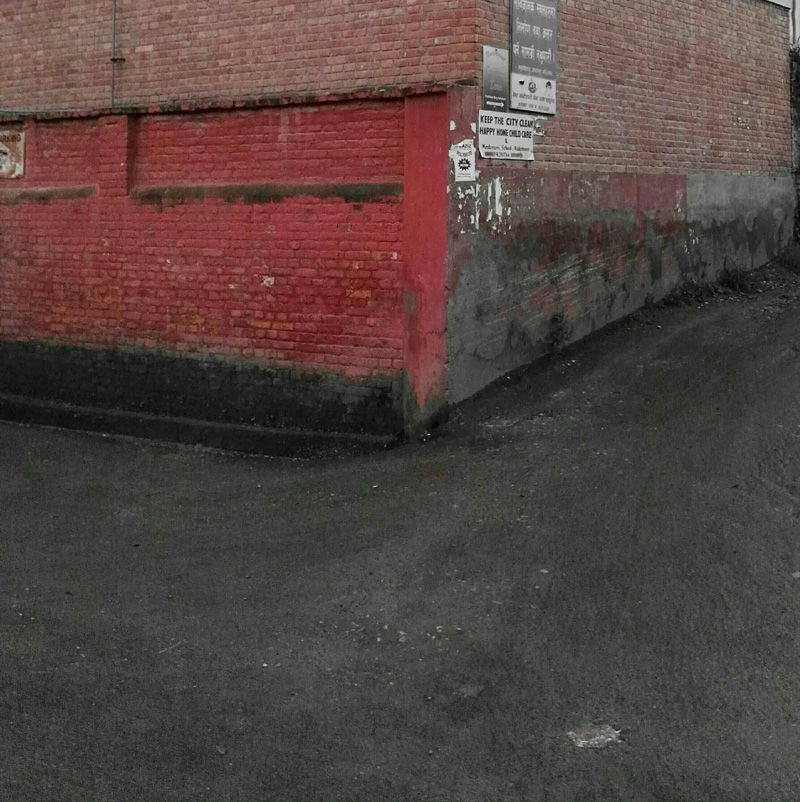
In one of those long melancholic nights of Sorah Sharddha this September, memories washed me down the stream of reverie
After a certain age, there is little romance left in the pitter patter of raindrops falling from the eaves in the middle of a dark September night. Somewhat like in the final stanza of the DH Lawrence’s evocative poem—“of all the pain / here to us given; / finely divisible / falling as rain”—the incessant rattle of Autumn Rain sends “sheaves of pain” through remembrances of the past as one tosses in the bed anxiously waiting for the comforting embrace of sleep.
Perhaps there is a reason Dashain festivities for many Hindus begin soon after the fortnight of Pitree Paksha when ancestors have visited the earth to accept ritual offerings from their descendents. Once relieved from the duty towards the dead, the living can then rejoice in the celebrations of life. In one of those long melancholic nights of Sorah Sharddha this September, flood of memories washed me down the stream of reverie. I must have imagined a lot, since it’s impossible for four-decade old encounters to be so fresh in mind.
Back in the late-1970s, the surface of the road between Jaleshwar and Janakpur was much better than it is now. Buses, however, were equally rickety with the jangle of aged engines drowning out the braying of the balloon horn. The frequency and timing of service were indeterminate even then, so one hung on to the pedestal of whichever vehicle was leaving the stand. During one such trip, someone smartly dressed in blue jeans and white kurta made his way through the crowd and stood at the back of the driver facing passengers.
Very few cars plied the road in those days. The Anchaladhish, the CDOs, the Manmahanth of Matihani and the General Manager of Janakpur Cigarette Factory had their Russian jeeps. Some Wily’s from across the border ferried pilgrims. There may have been more, but the only private Ambassador car that was frequently seen on this route belonged to the family of a well-known Marwari trader. The bus driver recognized the vehicle from his rearview mirror and let it overtake. As if on cue, the man in jeans-and-kurta began to speak. I paraphrase from memory and it’s impossible to capture the intensity of the voice of a preacher. But what I distinctly remember is that his authoritative tone had managed to draw the attention of the noisy crowd.
“Do you know why you have to remain half-naked even during the winter? It’s because the Seths and Sahukars like the one that just passed you by in his car take away all your money. You think it’s his car? No, it’s probably bought with a bank loan as are most of his businesses. Do you know whose money banks lend? Yours, of course! Do you know who will have to bear the cost if the borrower doesn’t pay back the money to the bank? You of course! Now do you realize why you have to wait until paddy harvest for a full meal and then begin to shiver once again by Teela Sankranti? Don’t let your children go through the same fate. Think my friend, think. You have a mind.” And then the man had disembarked and disappeared.
The bus-conductor had announced with awe: “That was krantikari teacher Gore Bahadur Khapangi”. It took me decades to appreciate the diagnosis of Khapangi. Commercial banks have been biggest beneficiaries of remittance inflow into places like Mahottari.
Their investments and profits, however, are fueling traffic jams in Kathmandu valley. Things certainly have changed, but not that much at the margins.
Even though wrongly attributed to Winston Churchill, perhaps there is some truth in the aphorism that if you’re not a liberal when you’re 25, you have no heart; and if you’re not a conservative by the time you’re 35, you have no brain. Khapangi had both in ample measure and he travelled from being a Marxist-Leninist through the narrow lanes of identity politics towards the highway of neo-conservatism. Other than exchanging polite barbs in his chaste Maithili, Khapangi never paid much attention to what I said or wrote. But unlike most neocons, he had the patience to listen and the generosity to accept that differences rather than concurrence composed the life of mind.
Sublimated servitude
Shiv Bahadur Pradhananga was the scion of a Sahu clan of Ason and came from a family that owned and operated Birbahadur-Gangabahadur trading conglomerate. Even otherwise, it’s widely believed that many Malla nobles had adopted Pradhananga surname to escape the wrath of vengeful Gorkhalis after the fall of King Jay Prakash in September 1768 during Indra Jatra revelries. As anyone who knew Pradhananga even casually would readily testify, nobility of character oozed from the noted technocrat in whatever he said, did or even left unsaid.
Having gone to preparatory school somewhere in Darjeeling and then finished higher secondary from Nainital, where Amitabh Bachhan and Kabir Bedi among others had been his illustrious juniors, Pradhananga went up to Roorkee to do his engineering. He knew advantages that comfortable class, respectable community and the best education of the time bestowed upon him, but never allowed the weight of privileges hamper his integrity.
My most vivid memory of Pradhananga is a bespectacled senior peering down my shoulders upon a drawing board propped up on a pile of bricks as we revised estimates to cut down the cost of a bridge in the yellow light of a Petromax with a log table and an adding machine to assist calculations. Little wonder, he was the last Chief Engineer of Department of Roads to do any hardcore engineering. After him, all such responsibilities were passed on to the consulting engineers of the profit-sector and cost escalation became the norm rather than exception. That was a trend he couldn’t reverse even when he became the Secretary of a powerful ministry.
Contrary to the reserved nature of Pradhananga, Ishwar Raj Onta was a flamboyant and feisty engineer who took things lightly enough to excel in whatever he did. When he was eased out of the government in the wake of post-Referendum vendetta of the regime, he quietly joined the flourishing profit-sector. He later became the President of Nepal Engineers Association and went on to head the Nepal Engineering Council. Nobody other than Onta would have thought of inviting me to speak to engineers about ethics in the profession. Engineers usually believe that considerations of efficiency and effectiveness take care of ethical concerns.
Though hardly alike, there were similarities in the life of these illustrious achievers. Both Pradhananga and Onta reached pinnacle of their profession and could convincingly claim to have been members of the technocratic elite throughout their lives. Despite their accomplishments and recognition however, they knew that they could never be a member of the power elite in the Khas-Arya country.
Pradhananga was too proud to admit his socio-political handicap, but Onta had no hesitation in asserting the obvious: “When the PEON disowned Ganeshman Singh in his last days, where do you think we stand?” The former sublimated his frustrations in professional excellence; the later began to add his voice to the popular clamor for change.
“The most distinguished persons,” George Bernard Shaw asserts with conviction, “become more revolutionary as they grow older.”
Detached outlier
I had been an admirer of Dubby Bhagat since the days of JS, a Calcutta periodical that I read religiously to learn what I thought was colloquial English. When I met him in the early 1990s in person, I found that he was a person of high taste and higher achievements. We became kind of friends because his granddaughter and my son were classmates. Dubby thought that the world was what it was and there was little point in trying to improve it. He was too polished to use such a tacky sentence, but he said something which seemed to imply that this life was merely a transit lounge in soul’s journey towards nirvana. All we could do was leave as light a footprint as possible.
Khapangi was triply marginalized: a Magar and a middleclass person in Madhesh.
Pradhananga and Onta were doubly disadvantaged despite their privileges—ethnic Newars with leadership ambitions in a Khas-Arya country. Dubby formed an outlier of distinction. Each took a road less travelled by. To take liberty with Robert Frost: Has that made any difference in our lives? The path alone knows on which they shall remain milestones. Happy Dashain in your journey home.
You May Like This

Nepse begins week with marginal gains
KATHMANDU, July 30: Stocks remained mostly positive during Sunday's trading. Nonetheless, the Nepal Stock Exchange (Nepse) index couldn't maintain its... Read More...
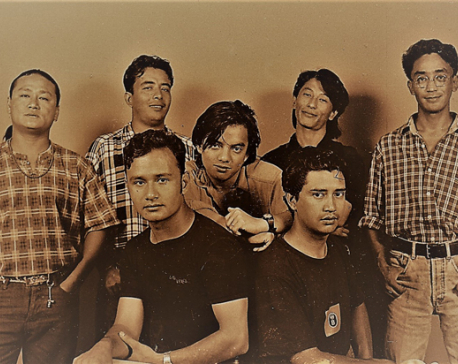
Music, melodies, and milestones
They make music that you crave to hear when you are away from home. Their lyrics speak to you and... Read More...
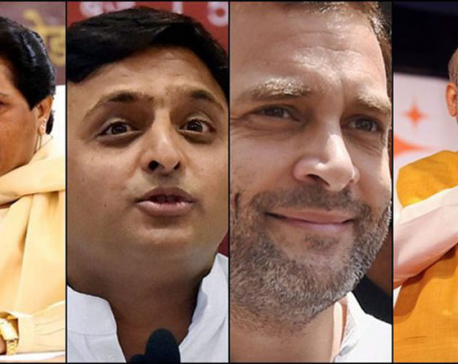
Marginal interest
There has in the past been no palpable shift in India’s larger Nepal policy even with government change in UP or... Read More...
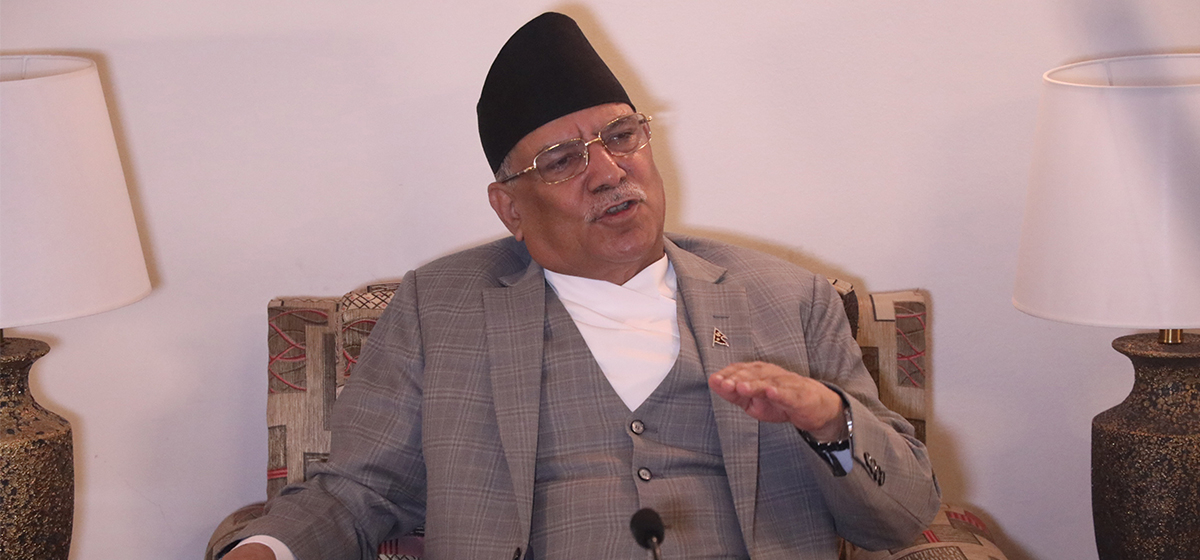
Just In
- Dr Ram Kantha Makaju Shrestha: A visionary leader transforming healthcare in Nepal
- Let us present practical projects, not 'wish list': PM Dahal
- President Paudel requests Emir of Qatar to initiate release of Bipin Joshi
- Emir of Qatar and President Paudel hold discussions at Sheetal Niwas
- Devi Khadka: The champion of sexual violence victims
- Nagarik Nayak Felicitation (Live)
- Qatar Emir in Kathmandu, President and Prime Minister welcome Emir at TIA (In Photos)
- NRM Director Gyawali inaugurates Nagarik Nayak 2081









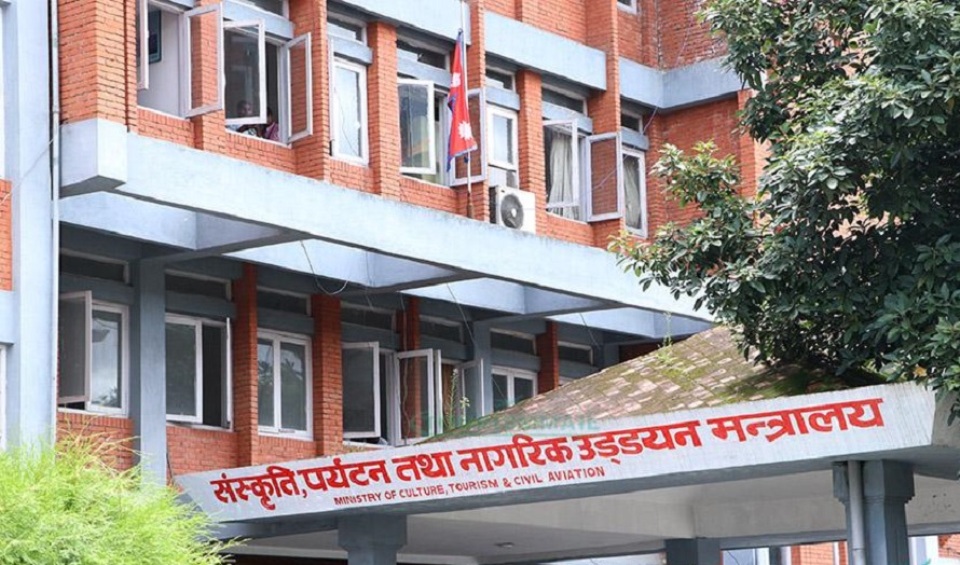
_20240423174443.jpg)

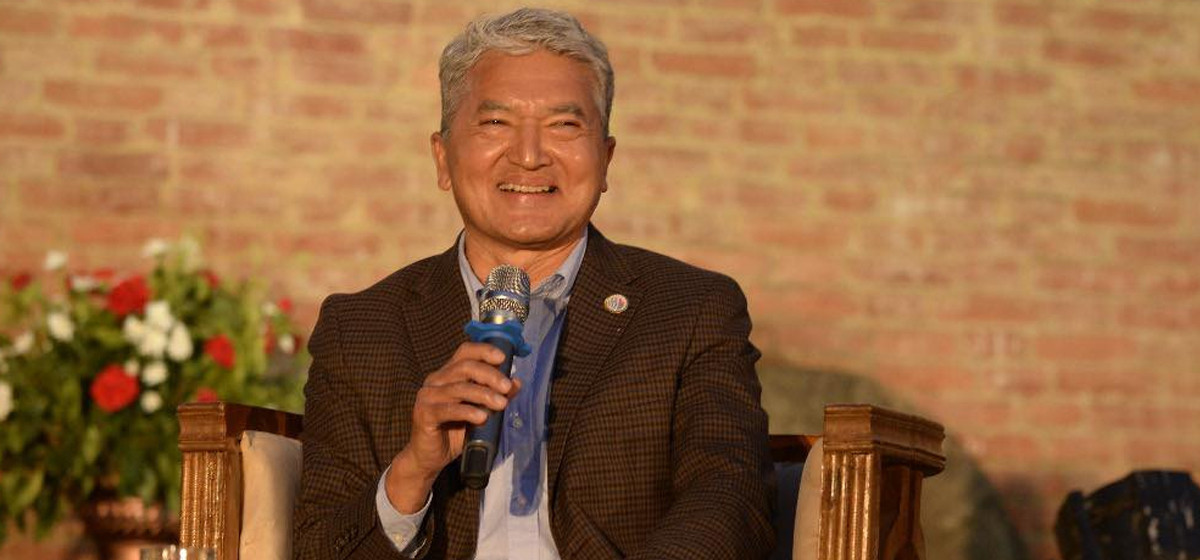

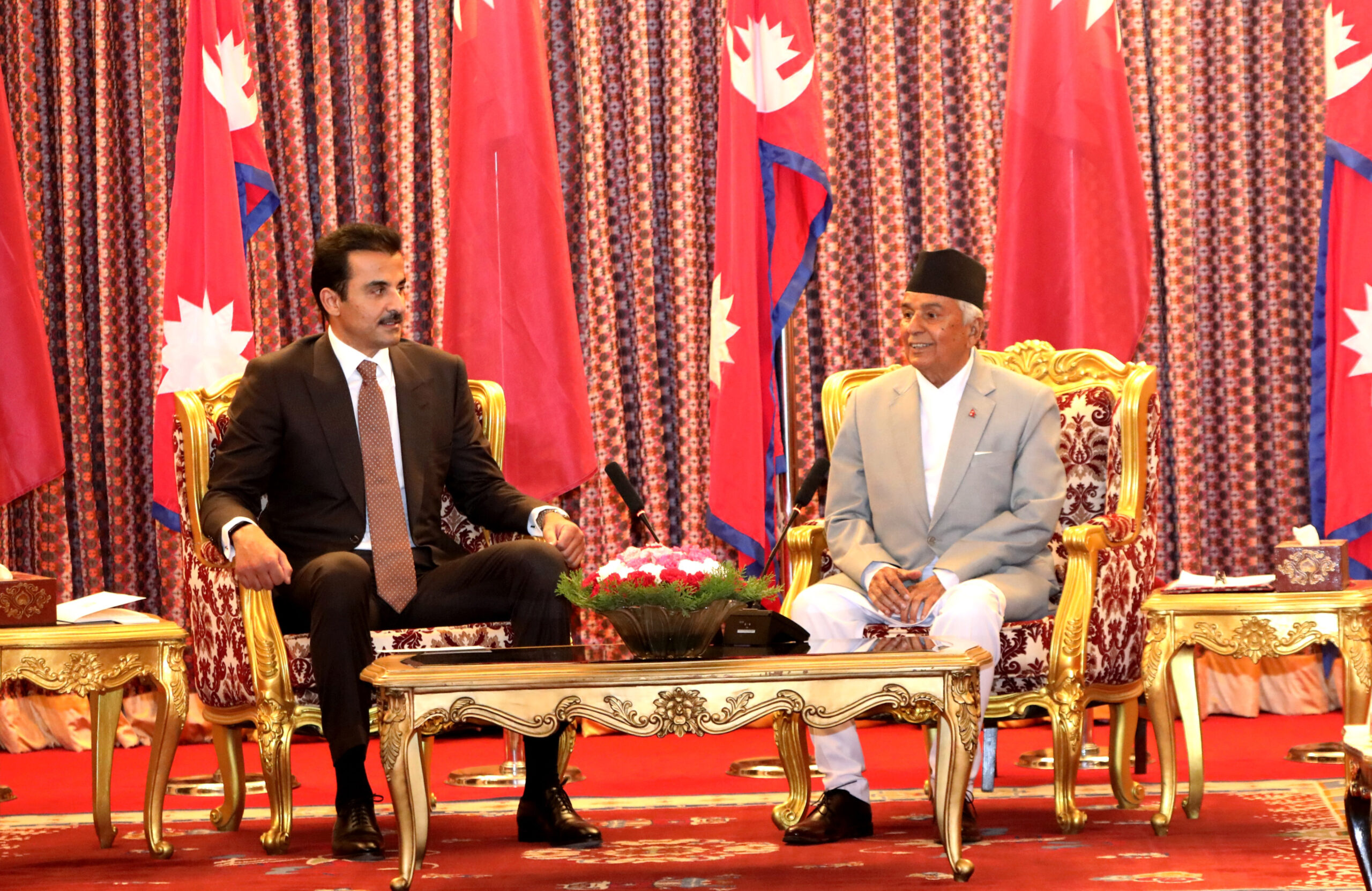
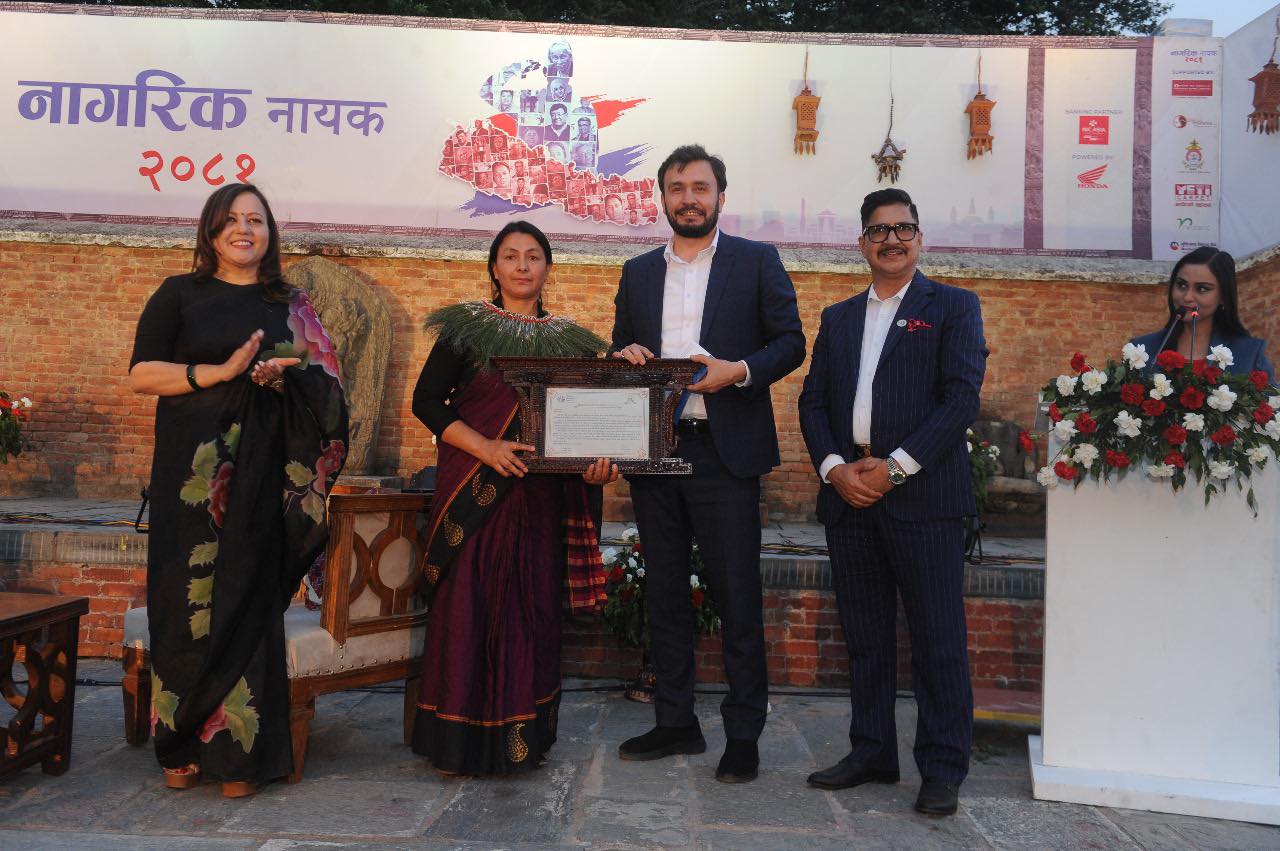
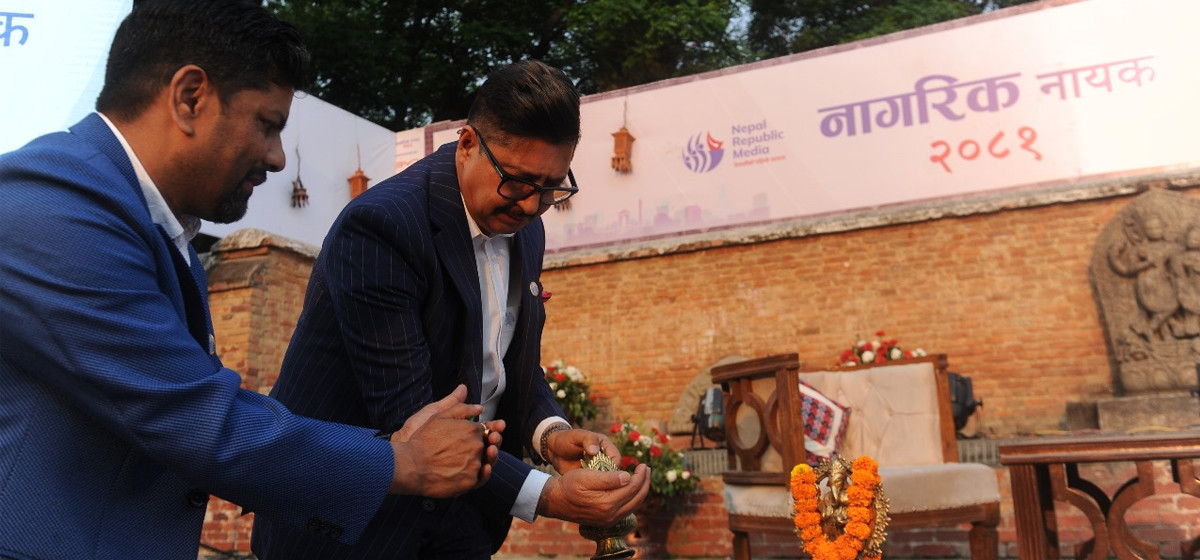
Leave A Comment